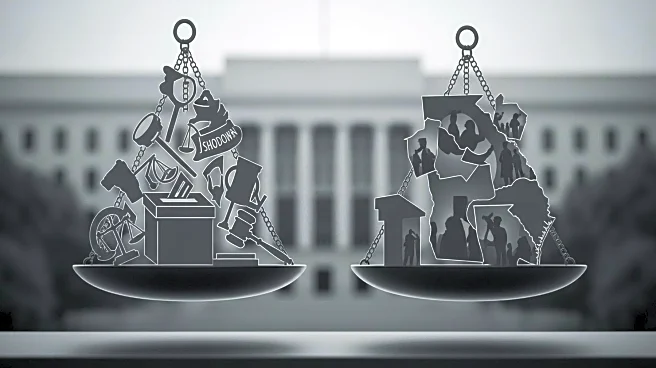What's Happening?
The federal government shutdown has entered its third day, affecting various sectors in Georgia, including national parks and federal employees. The shutdown has led to furloughs and limited services, with political parties blaming each other for the impasse. In Georgia, the shutdown's impact is felt across different communities, from farmers facing delays in funding to the Centers for Disease Control and Prevention dealing with furloughs. The Atlanta Community Food Bank is preparing for increased demand if federal food aid programs are affected. The shutdown also threatens to disrupt field trips and educational programs at local parks, raising concerns about long-term consequences.
Why It's Important?
The shutdown's impact on Georgia highlights the broader economic and social challenges posed by political stalemates. Farmers rely on timely data and funding, and delays could affect agricultural productivity. The CDC's reduced capacity during the shutdown could hinder public health initiatives. The situation underscores the importance of federal support for essential services and the potential consequences of prolonged political disputes. The shutdown also affects voter sentiment, with implications for upcoming elections, as constituents assess the performance of their representatives.
What's Next?
As the shutdown continues, stakeholders in Georgia may push for legislative solutions to resolve the impasse. Advocacy groups and local leaders may increase pressure on lawmakers to prioritize essential services and prevent future shutdowns. The situation may also influence voter behavior in the upcoming midterms, with candidates' positions on the shutdown becoming a focal point. The potential for extended disruptions could lead to increased community mobilization and calls for accountability from elected officials.
Beyond the Headlines
The shutdown raises questions about the ethical responsibilities of government to ensure continuity of services. It also highlights the cultural and educational importance of national parks and the need to preserve access for future generations. The reliance on nonprofits and local organizations to fill gaps during shutdowns may lead to shifts in community roles and expectations, potentially altering traditional government-community dynamics.








